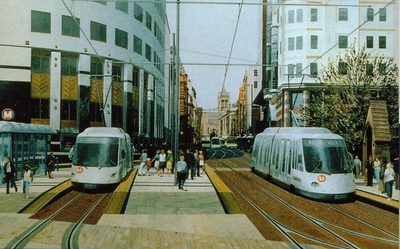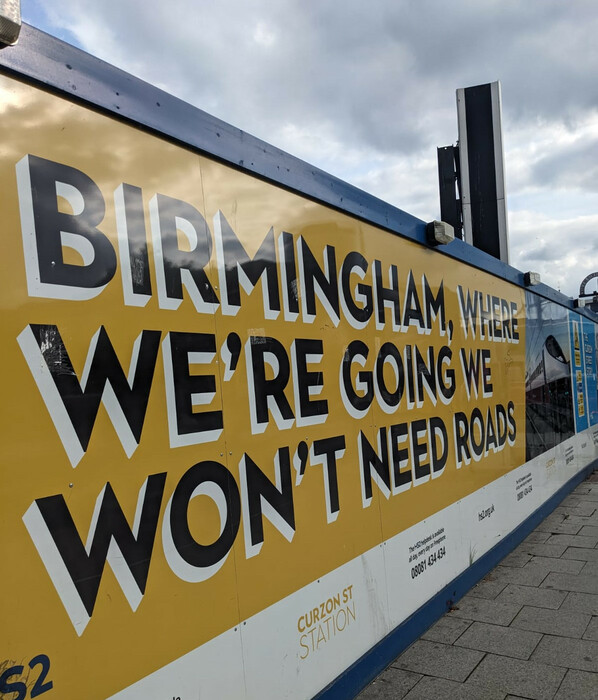The Freedom to Stay Put

For most people, travelling and going on holiday are aspirational activities - our sense of comfort, success and even self-worth are bound up with the extent to which we can do these things. Marco d'Eramo´s book ´An Inquiry into the Tourist Age´ chronicles this value system, arguing that our obsession with travel is not a novel phenomenon 1. For example, the predecessor to what is now known as the gap year stretches back hundreds of years, when children of aristocratic families were compelled to embark on grand voyages of cultural acquisition. Then, as now, there is considerable value placed on one's knowledge of the ´other´.
Beyond this, moving somewhere new is often associated with progress and social mobility. Across the world, but particularly in the Global South, this is most aptly represented through the ferocious process of urbanisation whereby traditional livelihoods and agriculture are abandoned in favour of the city. In some ways, urban flocking results from a strong ´push factor´, not least the rapidly declining viability of agriculture as an economic activity. As Mike Davis writes in ‘Planet of the Slums', in 1950 there were eighty-six cities in the world with a population of one million - by 2006, there were four hundred.
However, urbanisation is also accompanied by the ´pull factor´ of an idealised urban life. The city is seen as a realm of opportunity, a land of plenty. In the UK, London is the key example of this process; here, as in the Global South, the capital sucks in people from the countryside, but the more prominent trend is migration from towns and even other large cities. Alex Niven´s ´The North will rise again´ chronicles the way in which London has always figured as central to the cultural imagination of social mobility and success in the UK. Sam Bright´s ´Fortress London´ consolidates this view by explaining that the capital´s disproportionately strong economy leads to a mass influx of young professionals to London, in the process debilitating the vitality of the other regions’ economies as well as the UK as a whole.
As Same Skies´ report on Graduate Retention made clear, London was held up by respondents as somewhere which promised a future of prosperity. Crucially, this was coupled with an acknowledgement that this future prosperity would involve temporary sacrifice. In other words, with a high cost of living and low living standards (notably in housing), life in London does not grant immediate prosperity. Respondents were willing to endure a period of difficulty on the basis that the city would give them bountiful returns in the future.

Of course, this perception of London cannot be entirely ascribed to ‘feeling’. The notion that London grants opportunity is firmly grounded in fact: graduates living in London have far more access to well paid jobs and better public services compared to other parts of the UK. This is unsurprising given that investment in public services has been consistently lower in other regions compared to London, most acutely since 2010 but starting even before then under New Labour. For example, a Centre for Cities report showed how ´seven of the 10 cities with the largest cuts were in the North East, North West, or Yorkshire...on average northern cities saw a cut of 20 percent to their spending´. Though the specific effects of low investment on everyday life are not necessarily easy to discern, there is a clear correlation between low investment and low income. For example, very clear income disparities have emerged: the 2021 disposable income for individuals in London was 43% higher than elsewhere in the UK2. Though one should be careful not to glamourise the capital - where inequality is rife, the rental market is oppressive, and carving out a career/livelihood as a graduate is far from simple - there is nevertheless some empiricism to the ‘perception’ that London offers more opportunity and social mobility as far as the graduate demographic is concerned.
In other words, there is clearly a link between the material and the immaterial, between this vast chasm of investment, and the reflex ´perception´ that London is a better place to lead one's life. The types of investments which are made by governments are one key channel through which people develop perceptions about areas and cities; if London receives more investment, it is likely to be viewed positively. Not only this, but the general priorities which underpin which types of investment are made can cement a perception of London’s superiority, and more broadly creating a popular culture of the need to ‘migrate’ to find satisfaction. This includes the priority of governments to create infrastructure which leads people ´out´ of somewhere, rather than infrastructure which allows people to stay somewhere. By favouring infrastructural developments which facilitate ‘mobile’ living, rather than infrastructure which facilitates ‘static’ lives (housing, culture, healthcare), the need to ‘travel’ or ‘displace’ oneself is furthered.
HS2´s tagline ´Live in Birmingham, work in Manchester, play in London´ exemplifies the logic underpinning the focus on ´inter´ rather than ´intra´ regional connectivity. Rather than endeavouring to create communities where we can lead fulfilling lives without having to travel hundreds of miles, HS2 epitomises the diametric opposite: only by straddling several different cities, and dividing work, leisure and accommodation between them, can we lead prosperous and successful lives. Instead of placing emphasis on improving existing travel connections that ordinary people use, this grandiose project places travelling large inter-city distances above improving existing services, such as bus service linking rural to urban areas or train travel between cities and towns. Of course, this does not imply rejecting transport infrastructure; rather, it wagers that intra-regional transport should be as valued, if not more, than interregional. Indeed, half of all respondents in Same Skies´ graduate retention survey stressed that poor internal transport links were a key factor in their decision to abandon the West Yorkshire region 3.
If we are to create desirable and sustainable regions, conceiving of freedom as travel and mobility must be supplanted by Dr Dominic Davies´ concept of ´freedom to stay put´. Crucially, this should not be misread as a plea for people to discard their desire for travel and displacement. Rather, it should be that the logic of governance which focuses too much on designing infrastructure to move should instead pivot towards creating infrastructure which allows people to stay in one place. As Dr. Dominic Davies writes:
´What if we designed infrastructures to stay put in a place, rather than building them to escape somewhere else? The infrastructures we build are often centred on ideas and feelings of mobility – of the ability to get away from places…What would infrastructure look like if it was designed to facilitate feelings of belonging instead?´4.
The proposal is that infrastructure (i.e roads, transport, buildings) is not just physical; in a feedback loop, it emerges from, and is generative of, specific ideologies, priorities and feelings. This is captured by the concept ́´infrastructures of feeling´. Applying Davies ́ lens of the ´infrastructure of feeling´ to Same Skies’ report on graduate retention gives us new insights into our report’s conclusions. It shows that the way in which infrastructure is designed has both material and ideational impacts, and is instrumental to influencing whether graduates choose to stay or leave somewhere. More importantly, it offers a blueprint of sorts for how the current mode of designing infrastructure can be reimagined, in turn improving West Yorkshire graduate retention. Crucially, as our report made clear, improving graduate retention simultaneously improves the lives of people outside of the graduate demographic, not least people without the freedom to displace themselves. As such, this school of thought insists that by centering infrastructure around maximising feelings of ‘belonging’, West Yorkshire can thrive as a region which values graduates and citizens alike.
Image credits: 2001 Leeds Supertram proposal by West Yorkshire Passenger Transport Executive and Zoé Green.
-
https://www.versobooks.com/en-gb/products/782-the-world-in-a-selfie ↩
-
Office for National Statistics, 2021 ↩
-
https://www.yorkshireeveningpost.co.uk/news/traffic-and-travel/young-people-leaving-leeds-due-to-poor-public-transport-connections-west-yorkshire-think-tank-warns-4529499 ↩
-
https://www.city.ac.uk/news-and-events/news/2024/january/broken-promise-of-infrastructure ↩
Are Planners More Important Than Doctors?
In the rush of daily life when we all get caught up in the dash of uncertainty, it is professional planners who are the ones …
Please Join Us for Listening to West Yorkshire, April 7, 6pm-7pm
On May 6th there is an election for a Mayor of West Yorkshire. The Mayor's position covers everywhere in the Bradford, Calderdale, Kirklees, Leeds and …
West Yorkshire should call for powers to improve our welfare system
The recently announced West Yorkshire devolution deal provides £1.8 billion in funding over thirty years and new powers for deciding how that should be …
